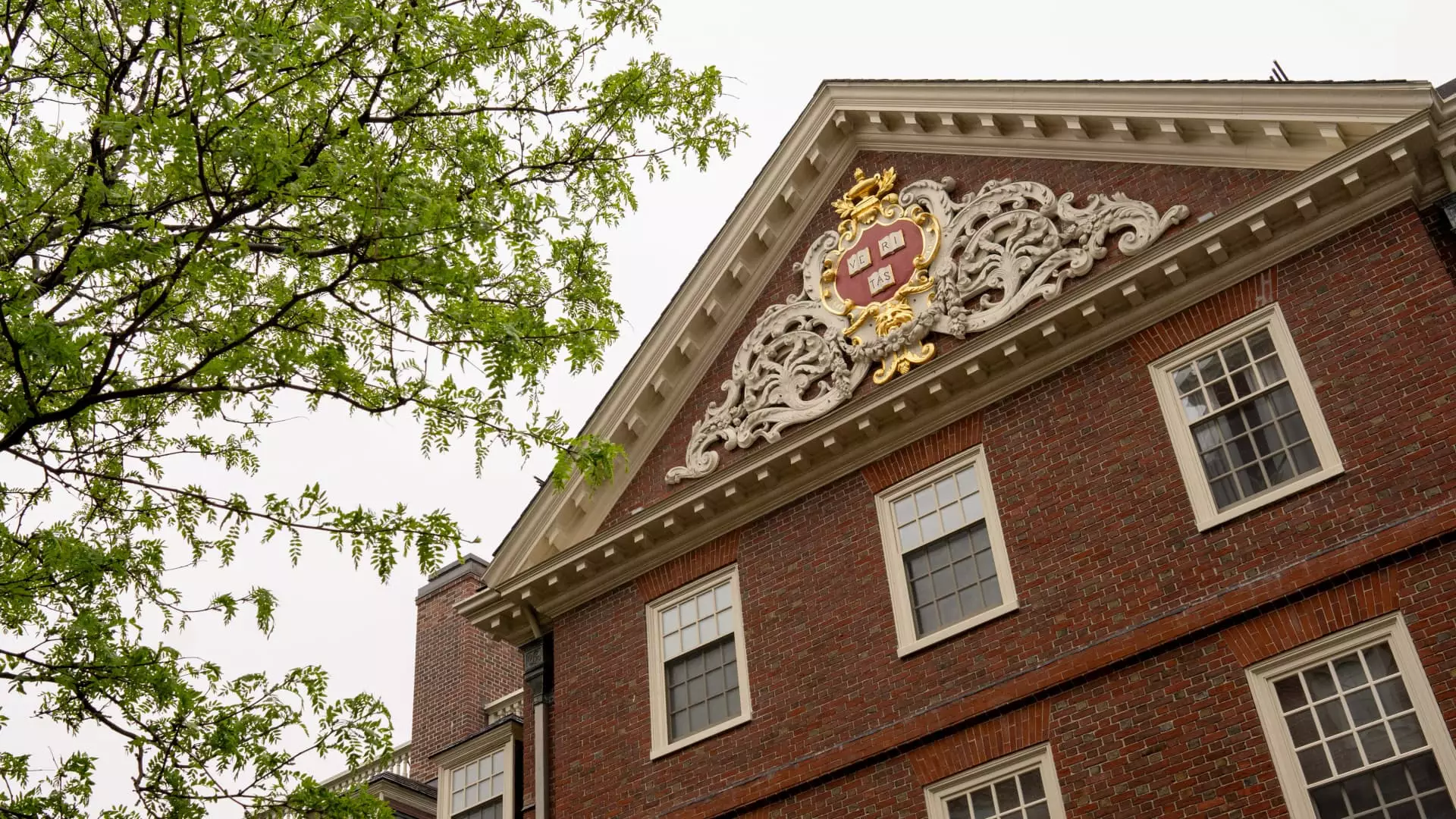The recent tumult surrounding President Donald Trump’s proposal to divert $3 billion in federal research grants from Harvard University to trade schools starkly exemplifies a growing trend in contemporary politics: the increasing disdain for intellectualism and academic excellence. Trump’s relentless pursuit of this agenda is not merely an isolated incident; rather, it reflects a broader narrative of anti-intellectualism that permeates certain political factions today, eroding trust in established academic institutions. Rather than championing these institutions as bastions of knowledge and progress, there is a deliberate effort to undermine them, ostensibly in the name of patriotism.
The politicization of academia is nothing new, but Trump’s actions are particularly alarming in their aggressiveness. By vilifying prestigious institutions such as Harvard and deeming their faculty “Radical Left idiots,” Trump is encouraging a narrative that equates dissent with treason and academic rigor with disloyalty to a nationalist agenda. This mentality shifts the focus from educational advancement and scientific inquiry to a divisive culture war where loyalty to a political ideology overshadows the pursuit of truth and knowledge.
Government Overreach and the Threat to Funding
The gravity of Trump’s proposal cannot be understated; it represents a dangerous precedent of government overreach into academia, as illustrated by the chilling ramifications it has for research funded through federal grants. The National Institutes of Health (NIH) and other agencies afford crucial funds that empower scientists to conduct vital biomedical research. Shifting these resources to trade schools ostensibly in response to political grievances undermines the existing structure that legitimizes funding based on rigorous academic standards and peer-reviewed proposals.
Harvard’s response—a lawsuit alleging an unconstitutional attack on its free speech rights—highlights the fundamental issue at stake: the extent to which the government can interfere with the operational integrity of educational institutions. Supporting an academic ecosystem that thrives on inquiry, criticism, and the freedom to speak against prevailing conventions is imperative. The question remains: how will academic institutions survive in an environment where funding can be weaponized as a tool of political retribution?
The Broader Implications for International Students
The stakes extend beyond funding, encapsulating the broader implications for international students who constitute a significant portion of Harvard’s enrollment. With nearly 6,800 international students in its ranks, the university not only thrives on the diversity that these students bring but also relies on the financial contributions they make through tuition. Trump’s attempt to block foreign enrollments in retaliation for Harvard’s perceived noncompliance with his policies is a reckless maneuver that risks alienating a generation of global minds.
The temporary relief granted by a U.S. judge illustrates the judicial system’s role as a counterbalance to the executive overreach, emphasizing the need for checks on power in safeguarding the independence of educational institutions. The potential loss of international students not only threatens financial stability but could also diminish the rich tapestry of cultural perspectives that American universities pride themselves on cultivating.
Politics vs. Academic Freedom
Trump’s escalating attacks on elite universities signal a dangerous trend toward utilizing political power to suppress dissent within academic discourse. The proposal to revoke Harvard’s tax-exempt status or the suggestion of discriminatory practices against applicants implies a broader strategy to force compliance from institutions that do not align with his political narratives. This is where the line is drawn; the sanctity of academic freedom must remain uncompromised by political whims.
It is critical to engage in a war of ideas rather than a war of attrition between political power and academic integrity. Discouraging intellectualism in favor of populist rhetoric undermines the very fabric of a democratic society that relies on informed decision-making and critical thinking. Upholding academic independence is not simply a matter of protecting prestigious institutions; it is essential to maintain a vibrant democracy where diverse viewpoints can thrive, challenge one another, and contribute positively to societal progress.
As this political saga unfolds, one can only hope for a revival of respect for scholarship, an appreciation for scientific progress, and an acknowledgment that the exchange of ideas—regardless of their ideological slant—fuels the advancement of society. Would-be leaders should cultivate an environment that fosters critical thought rather than fear it, lest we risk plunging into an age of ignorance, alienating the very foundation of progress itself.

Leave a Reply